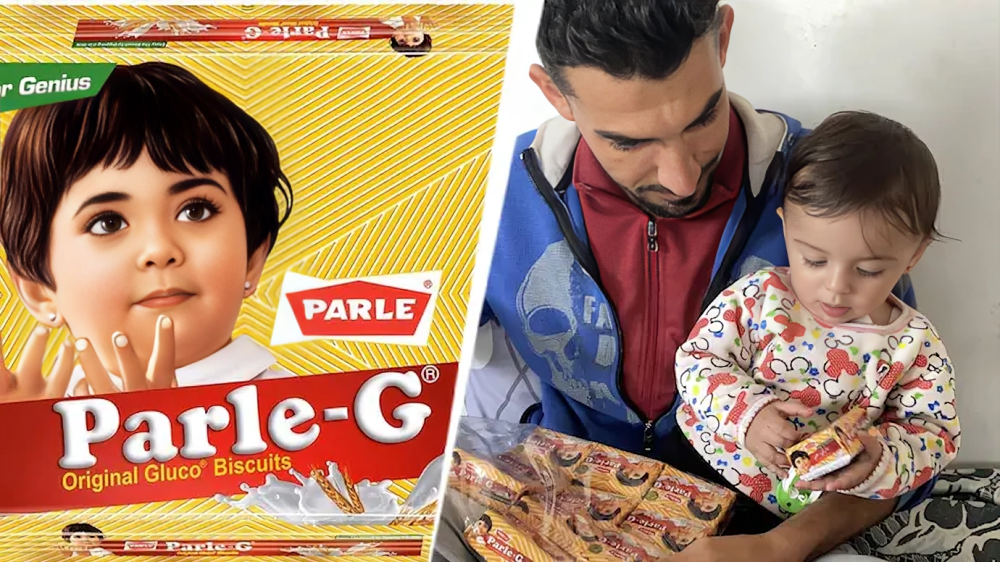A packet of Parle-G biscuits, typically priced at mere ₹5 in India, has shockingly surged to approximately ₹2,400 in Gaza, reflecting the severe humanitarian crisis that has engulfed the region. This exorbitant price increase is emblematic of the dire circumstances under which Gazans are currently living—jammed in a realm of scarcity, siege, and ongoing conflict.
Parle-G, an iconic biscuit first introduced in 1938, has long been a favorite in Indian households, valued for its affordability and taste. In stark contrast, its rare presence in Gaza has transformed it into a symbol of desperation and economic collapse. The staggering price increase illustrates the harsh reality of a community facing extreme shortages of basic necessities.
Since the resurgence of the Israel–Hamas conflict in October 2023 and the near-total blockade that followed in March 2025, Gaza has spiraled into a humanitarian disaster. With over two million residents trapped and facing acute food shortages, the region grapples with a collapsing healthcare system and limited access to clean water, fuel, and medicine. The World Health Organization has issued alarming warnings regarding the potential for famine, with children suffering from malnutrition and a considerable portion of the population facing catastrophic hunger.
Recent reports from the ground depict images of despair, where people reportedly go days without food. Basic items like a bag of flour can cost around 500 shekels (approximately $150), highlighting the extreme inflation affecting even the most fundamental supplies.
The shocking rise in the price of a single packet of Parle-G—now around 100 Israeli shekels or ₹2,400—is largely attributed to scarce supply and exploitation within the black market. With borders effectively sealed, the import of goods has diminished drastically. What meager supplies do arrive—whether through sporadic humanitarian aid or clandestine smuggling—are quickly gobbled up and resold at extravagant prices.
The story is further complicated by the Palestinian Consumer Price Index, which registered a staggering 91.61% rise in prices in April 2025 alone, indicating that many food items have doubled in cost within just a month.
In India, Parle-G evokes nostalgia and childhood memories. In Gaza, it has morphed into a potent reminder of resilience amid adversity. Many parents recount tales of spending their last savings to provide their children with a moment of joy through this familiar snack, a stark contrast to its original status as an everyday item.
India has traditionally supported the Palestinian cause, and its products often find their way to Gaza through aid shipments. However, due to the current blockade, even these efforts have become scarce and ineffective. Many Indian goods that reach Gaza are either lost in exploitation or fail to penetrate the market for ordinary citizens.
As the blockade tightens, a shadow economy has emerged. Smuggling, theft, and exorbitant resale prices dominate the landscape, leaving essentials such as baby formula, medicine, and flour astronomically priced. Desperation drives families to extraordinary lengths for survival, with an ordinary biscuit now serving as both comfort and currency.
Voices from Gaza share heartbreaking accounts of children suffering from hunger and families resorting to boiling weeds as a means to subsist. Under these extreme conditions, the purchase of a ₹2,400 biscuit symbolizes not luxury but rather a quiet act of defiance against overwhelming despair.
The situation in Gaza mirrors crises unfolding in conflict-affected regions like Syria, Yemen, and Sudan, where everyday items have morphed into symbols of survival. The economic impact of warfare is profound, transforming basic sustenance into an unattainable luxury.
In conclusion, Parle-G’s soaring price underscores a broader humanitarian crisis, serving as a poignant marker of suffering and resilience. Once celebrated for its simplicity, this biscuit now embodies grief and an enduring hope for peace in a fractured land. The need for open borders, sustained humanitarian aid, and a lasting ceasefire has never been more urgent, illustrating how deeply intertwined the value of even the most common items is with the human experience.







